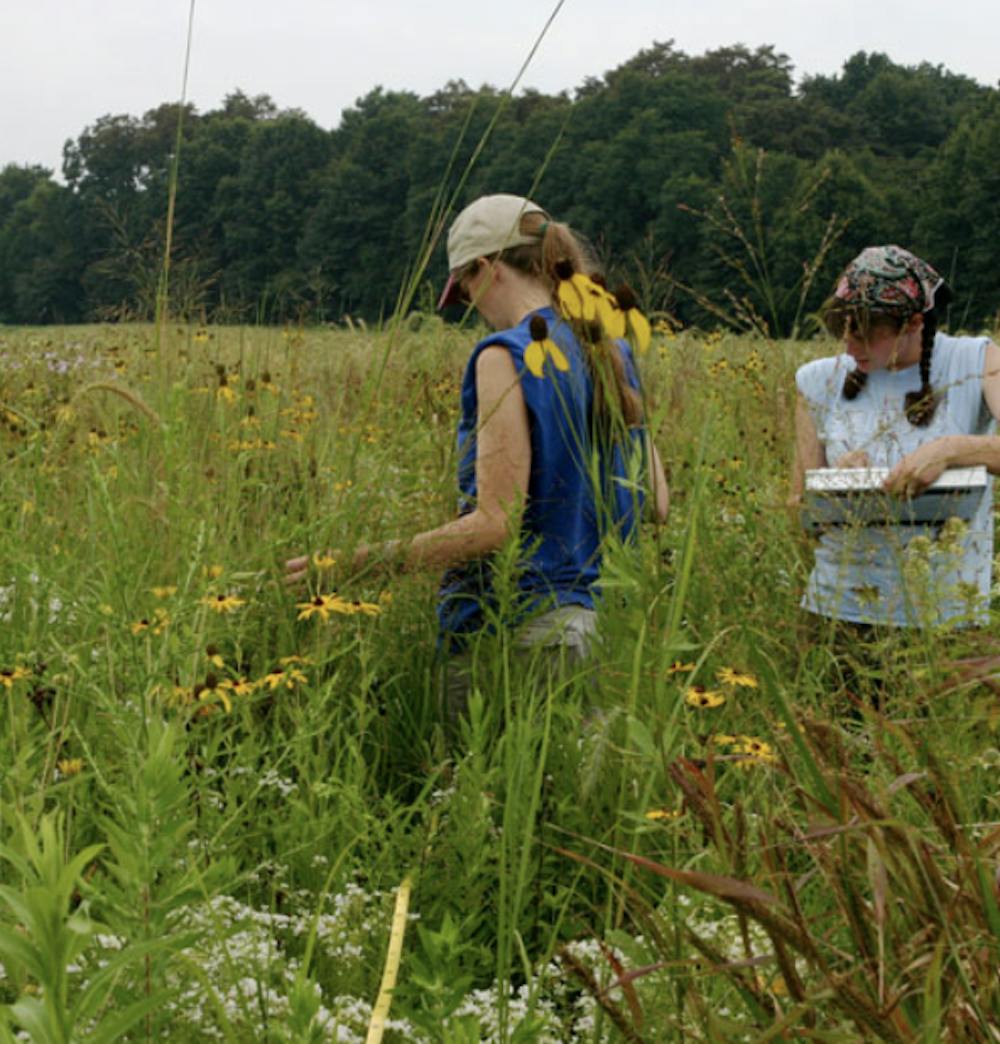Ministry doesn’t always come from the pulpit.
Sometimes, it comes in a garden, walking with God as Adam once did. Sometimes, ministry lies in the simple act of worship through work — a guiding motive behind Taylor’s environmental science and sustainability majors.
Yet at the same time, we are a long way from Eden.
Living in a fallen world, these majors — and the Foundational Core as a whole — remind their students that every form of relationship we have on our planet has fallen: relationship with God, relationship with self, relationship with others and yes, our relationship with creation as well.
That’s not to say hope is lost.
“Having that relationship with creation, that intimacy of understanding helps us praise God more, right? We understand him more,” Phil Grabowski, assistant professor of sustainable development, said. “We want students in these classes to know creation better, be able to understand it, and then give praise to God. God uses that creation to provide for people. So as we think about the mission to love others, caring for creation is often an instrumental way to do that.”
It’s a restoration message Grabowski hopes to instill in his students as well.
Work is a form of worship and restoration. Taking care of creation is worship and restoration. And for environmental and sustainable development students, these are often the same thing. Grabowski leads classes through service projects in some of his labs, sometimes picking up 400 pounds of trash along the road after just a few hours of work.
The accomplishment doesn’t always feel like a win, though, with more trash piling up even the next day. But for sophomore Sarah Steffy, an environmental science major, that unattainable, perfect result isn’t the goal.
“Having excellence in my work, I think, is worshiping God through it,” Steffy said, “especially with how broken the Earth is. We have a lot of room to work.”
And there is a lot of work being done.
In the 25 years Robert Reber, an assistant professor of environmental science, has taught at Taylor, he’s taught nearly 1,000 students, hoping to pass on his love of creation to those around him. Afterall, an attitude of worship leads to behavior change and greater sustainability.
“Nature is something that should not be feared. It should be something that's embraced,” Reber said. “How people can be more connected with nature, or connected with reality, as I put it … [is to] spend a little bit more time away from your screens. A little bit more time with each other. Even communicating with each other makes it better. But spend more time outside.
Sophomore Joshua Groeling, a sustainable development major, expressed the same goal for students.
To him, there’s a calling to be fulfilled by simply caring for and being in community with the creation God has given us.
“It's not something that has to be so sacrificial, if we approach it with a mindset of bettering ourselves for the sake of, you know, for God,” Groeling said. “I am starting to try to apply that [in] my own life and [start] seeing environmental care as an act of worship towards God to bring more glory to Him.”
Even enjoying nature is a form of worship. Even planting a small garden to live a little more sustainably is a form of ministry. And ministry is so much more than what exists on a Sunday morning service — it’s an act of service and a search for restoring every fallen relationship of this world, from our relationship with God to our relationship with his creation as well.





